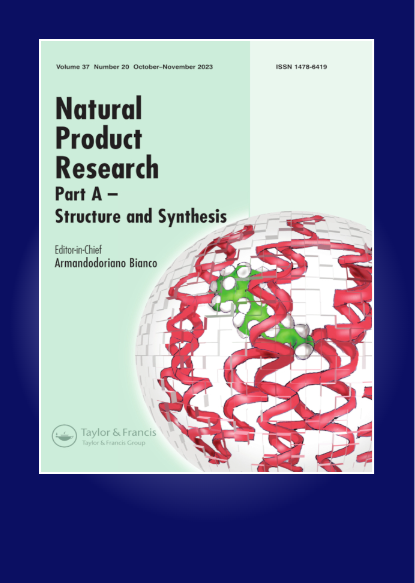A comprehensive review of phytochemistry, pharmacology and clinical application of Gentianae Macrophyllae Radix
IF 1.9
3区 化学
Q3 CHEMISTRY, APPLIED
引用次数: 0
Abstract
Gentianae Macrophyllae Radix (GMR) is a traditional Chinese herb with the function of dispelling wind and dampness, and removing damp heat. Currently, it is reported in the literature that GMR mainly contains iridoids and secoiridoids, in addition to triterpenoids, flavonoids, lignans, steroids, alkaloids and other chemical components. Among them, iridoids and secoiridoids are the main active ingredients of GMR. Modern pharmacological studies have shown that GMR has pharmacological effects such as anti-inflammatory, anti-tumor, hepatoprotective, immunomodulatory and cardioprotective. In clinical practice, GMR is mainly used to treat rheumatoid arthritis, ulcerative colitis, stroke and other related diseases with good therapeutic effects. Currently, there are few literature reports on the GMR research progress. Therefore, this paper provides a review of the chemical composition, pharmacological activity and clinical applications of GMR to provide some scientific basis for the further development of plant resources.
龙胆草植物化学、药理学和临床应用综述。
龙胆草(Gentianae Macrophyllae Radix,GMR)是一种传统中草药,具有祛风除湿、清热利湿的功效。目前,文献报道龙胆草主要含有鸢尾类和仲鸢尾类化合物,此外还含有三萜类、黄酮类、木脂素、甾体、生物碱等化学成分。其中,鸢尾类和仲鸢尾类是吉玛草的主要有效成分。现代药理学研究表明,吉玛草具有抗炎、抗肿瘤、保肝、免疫调节和保护心脏等药理作用。在临床实践中,GMR 主要用于治疗类风湿性关节炎、溃疡性结肠炎、中风等相关疾病,具有良好的治疗效果。目前,有关 GMR 研究进展的文献报道较少。因此,本文对 GMR 的化学成分、药理活性和临床应用进行了综述,为进一步开发植物资源提供一些科学依据。
本文章由计算机程序翻译,如有差异,请以英文原文为准。
求助全文
约1分钟内获得全文
求助全文
来源期刊

Natural Product Research
化学-医药化学
CiteScore
5.10
自引率
9.10%
发文量
605
审稿时长
2.1 months
期刊介绍:
The aim of Natural Product Research is to publish important contributions in the field of natural product chemistry. The journal covers all aspects of research in the chemistry and biochemistry of naturally occurring compounds.
The communications include coverage of work on natural substances of land and sea and of plants, microbes and animals. Discussions of structure elucidation, synthesis and experimental biosynthesis of natural products as well as developments of methods in these areas are welcomed in the journal. Finally, research papers in fields on the chemistry-biology boundary, eg. fermentation chemistry, plant tissue culture investigations etc., are accepted into the journal.
Natural Product Research issues will be subtitled either ""Part A - Synthesis and Structure"" or ""Part B - Bioactive Natural Products"". for details on this , see the forthcoming articles section.
All manuscript submissions are subject to initial appraisal by the Editor, and, if found suitable for further consideration, to peer review by independent, anonymous expert referees. All peer review is single blind and submission is online via ScholarOne Manuscripts.
 求助内容:
求助内容: 应助结果提醒方式:
应助结果提醒方式:


